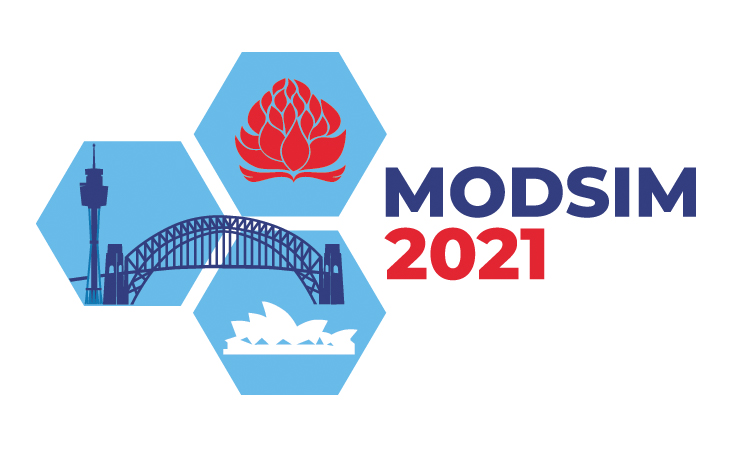
 Belinda Medlyn is Distinguished Professor of Ecosystem Modelling at the Hawkesbury Institute for the Environment, Western Sydney University. Her research focuses on modelling responses of plant ecosystems to environmental change, particularly rising carbon dioxide, warming temperatures, drought and heatwaves. She currently holds an Australian Research Council Georgina Sweet Laureate Fellowship and is leading a team developing a dynamic vegetation model that aims to predict future dynamics of Australian vegetation. She collaborates widely to synthesise experimental data and develop evidence-based models of climate impacts on vegetation. For example, her work on water use by plants drew together the main strands of evidence about stomatal behaviour to develop a unified theory that serves as a major framework for research in this area. She has been instrumental in international projects evaluating ecosystem models against Free-Air CO2 Enrichment (FACE) experiments, and leads model synthesis activities at the Eucalyptus FACE experiment in Western Sydney. Her work on modelling drought death in forests led her to establish the Dead Tree Detective citizen science initiative. She is an editor for New Phytologist, a member of the Terrestrial Ecosystems Research Network (TERN) Science Advisory Committee and a Clarivate Analytics Highly-Cited Researcher (2018-2020).
Belinda Medlyn is Distinguished Professor of Ecosystem Modelling at the Hawkesbury Institute for the Environment, Western Sydney University. Her research focuses on modelling responses of plant ecosystems to environmental change, particularly rising carbon dioxide, warming temperatures, drought and heatwaves. She currently holds an Australian Research Council Georgina Sweet Laureate Fellowship and is leading a team developing a dynamic vegetation model that aims to predict future dynamics of Australian vegetation. She collaborates widely to synthesise experimental data and develop evidence-based models of climate impacts on vegetation. For example, her work on water use by plants drew together the main strands of evidence about stomatal behaviour to develop a unified theory that serves as a major framework for research in this area. She has been instrumental in international projects evaluating ecosystem models against Free-Air CO2 Enrichment (FACE) experiments, and leads model synthesis activities at the Eucalyptus FACE experiment in Western Sydney. Her work on modelling drought death in forests led her to establish the Dead Tree Detective citizen science initiative. She is an editor for New Phytologist, a member of the Terrestrial Ecosystems Research Network (TERN) Science Advisory Committee and a Clarivate Analytics Highly-Cited Researcher (2018-2020).
 David Hamilton is Deputy Director and Professor in Water Science at the Australian Rivers Institute, Griffith University. He has held positions bridging engineering and environmental sciences; in Environmental Engineering at the University of Western Australia, Biological Sciences at the University of Waikato in New Zealand, and his current position. He was the inaugural Bay of Plenty Regional Council Chair in Lake Restoration at the University of Waikato and held this position from 2002 to 2017. As Lake Restoration chair, he worked closely with lake managers to implement predictive models to support restoration programs. This work, along with a national-level lake restoration program, culminated in publication of The Lake Restoration Handbook: A New Zealand Perspective in 2019. Hamilton uses autonomous environmental sensors to improve model predictions that provide insights into the recovery of freshwater ecosystems. He has been closely involved in management and policy implementation for freshwater ecosystems, holding appointments with the Ministry for the Environment (NZ) and advisory roles for regional councils and industry groups in New Zealand and Australia, as well as supporting assessments in USA, Thailand, Austria, China, Western Samoa and Malaysia. He is a past President of the New Zealand Freshwater Sciences Society, editor-in-chief of the scientific journal Inland Waters and associate editor for several other aquatic journals.
David Hamilton is Deputy Director and Professor in Water Science at the Australian Rivers Institute, Griffith University. He has held positions bridging engineering and environmental sciences; in Environmental Engineering at the University of Western Australia, Biological Sciences at the University of Waikato in New Zealand, and his current position. He was the inaugural Bay of Plenty Regional Council Chair in Lake Restoration at the University of Waikato and held this position from 2002 to 2017. As Lake Restoration chair, he worked closely with lake managers to implement predictive models to support restoration programs. This work, along with a national-level lake restoration program, culminated in publication of The Lake Restoration Handbook: A New Zealand Perspective in 2019. Hamilton uses autonomous environmental sensors to improve model predictions that provide insights into the recovery of freshwater ecosystems. He has been closely involved in management and policy implementation for freshwater ecosystems, holding appointments with the Ministry for the Environment (NZ) and advisory roles for regional councils and industry groups in New Zealand and Australia, as well as supporting assessments in USA, Thailand, Austria, China, Western Samoa and Malaysia. He is a past President of the New Zealand Freshwater Sciences Society, editor-in-chief of the scientific journal Inland Waters and associate editor for several other aquatic journals.
 Ganna Pogrebna is Professor of Behavioral Business Analytics and Data Science at the University of Sydney. She also serves as a Lead of Behavioral Data Science strand at the Alan Turing Institute – the national centre for AI and Data Science in London (UK), where Ganna is a fellow working on hybrid modelling approaches between behavioral science and data science (e.g., anthropomorphic learning). Ganna published many articles in high-quality peer-refereed journals. Prior to joining the Leadership Quarterly editorial team, Ganna served as an associate editor of Judgement and Decision Making journal. Ganna studied Economics at the University of Missouri Kansas City (US) and the University of Innsbruck (Austria). She holds a Ph.D. in Economics and Social Sciences. At different points of her career, Ganna worked at Columbia University in New York (USA), the University of Bonn (Germany), Humboldt-Universität zu Berlin (Germany), the University of Innsbruck (Austria), the University of Warwick (UK), and the University of Birmingham (UK).
Ganna Pogrebna is Professor of Behavioral Business Analytics and Data Science at the University of Sydney. She also serves as a Lead of Behavioral Data Science strand at the Alan Turing Institute – the national centre for AI and Data Science in London (UK), where Ganna is a fellow working on hybrid modelling approaches between behavioral science and data science (e.g., anthropomorphic learning). Ganna published many articles in high-quality peer-refereed journals. Prior to joining the Leadership Quarterly editorial team, Ganna served as an associate editor of Judgement and Decision Making journal. Ganna studied Economics at the University of Missouri Kansas City (US) and the University of Innsbruck (Austria). She holds a Ph.D. in Economics and Social Sciences. At different points of her career, Ganna worked at Columbia University in New York (USA), the University of Bonn (Germany), Humboldt-Universität zu Berlin (Germany), the University of Innsbruck (Austria), the University of Warwick (UK), and the University of Birmingham (UK).
Blending behavioral science, AI, computer science, data analytics, engineering, and business model innovation, Ganna helps leaders in businesses, charities, and public sector to better understand why they make decisions they make and how they can optimize their behavior to achieve higher profit, better social and commercial outcomes, as well as flourish and bolster wellbeing of their teams. Her recent projects focus on the role of smart technological and social systems, human-computer and human-data interactions, as well as human-machine teaming in organizations and how these current and future technologies impact leadership and leaders' decision making.
Ganna published extensively in high-quality peer-refereed journals including the Leadership Quarterly, Management Science, Economic Journal, Journal of Applied Econometrics as well as many others. Ganna’s work on risk analytics and modelling was recognized by the Leverhulme Research Fellowship award. In January 2020, she was also named as the winner of TechWomen100 – the prize awarded to leading female experts in Science, Technology, Engineering and Mathematics in the UK. She is also named as one of 20+ Inspiring Data Scientists by the AI Time Journal. Over the years, she led as well as contributed to a large number of projects, funded by UK Research and Innovation (including ESRC, EPSRC, and other governmental bodies in the UK), the Leverhulme Trust, as well as a number of private organizations; and won competitions for over a total of £15 million in research funding since 2013.
Ganna runs the Data Driven blog on YouTube (https://bit.ly/datadrivenyoutube), cybersecurity blog CyberBitsEtc, as well as Inclusion AI blog. She is also an occasional contributor to the VOXEU blog, BBC blog, and the Alan Turing Institute blog. Her work is regularly covered by the traditional as well as social media. Ganna is one of the contributors to the Oxford Handbook of AI Ethics. She is also currently co-editing the Cambridge Handbook of Behavioral Data Science, which is due to be published in 2022.
 Holger is Professor of Environmental Engineering at the University of Adelaide. His interests are in developing and applying methods that result in sustainable outcomes, especially when dealing with complex systems in an uncertain environment. Examples of this include the development of decision support systems for long-term disaster risk reduction under a range of plausible futures, the development of innovative bottom-up climate impact assessment methods, the development of adaptive approaches to urban stormwater management using smart technologies and the development of approaches supporting the decarbonisation of the gas industry. Holger is a Fellow of the Modelling and Simulation Society of Australia and New Zealand, a recipient of the Biennial Medal of the International Environmental Modelling and Simulation Society and an Editor of Environmental Modelling and Software.
Holger is Professor of Environmental Engineering at the University of Adelaide. His interests are in developing and applying methods that result in sustainable outcomes, especially when dealing with complex systems in an uncertain environment. Examples of this include the development of decision support systems for long-term disaster risk reduction under a range of plausible futures, the development of innovative bottom-up climate impact assessment methods, the development of adaptive approaches to urban stormwater management using smart technologies and the development of approaches supporting the decarbonisation of the gas industry. Holger is a Fellow of the Modelling and Simulation Society of Australia and New Zealand, a recipient of the Biennial Medal of the International Environmental Modelling and Simulation Society and an Editor of Environmental Modelling and Software.
 Matthew is a Lecturer of Applied Mathematics at Queensland University of Technology, Brisbane. He is an applied mathematical modeller of environmental and biological systems, with a strong interest in using these models to inform decision-making. Matthew's work aims to bridge the gaps between modellers and decision-makers, by showing how mathematics can be used to gain substantial insights into how environmental systems function as well as inform their management. Mathematical techniques of interest include differential equation models, Bayesian statistics, and value-of-information analysis, but ultimately the technique used depends on the goal of the research. He is currently contributing decision science support for the Great Barrier Reef's Restoration and Adaptation Program, using models to investigate the potential for catastrophic ecosystem shifts in Antarctica, and developing new communication tools to improve model-data integration in the water modelling sector. Matthew was the recipient of a Discovery Early Career Researcher Award in 2020.
Matthew is a Lecturer of Applied Mathematics at Queensland University of Technology, Brisbane. He is an applied mathematical modeller of environmental and biological systems, with a strong interest in using these models to inform decision-making. Matthew's work aims to bridge the gaps between modellers and decision-makers, by showing how mathematics can be used to gain substantial insights into how environmental systems function as well as inform their management. Mathematical techniques of interest include differential equation models, Bayesian statistics, and value-of-information analysis, but ultimately the technique used depends on the goal of the research. He is currently contributing decision science support for the Great Barrier Reef's Restoration and Adaptation Program, using models to investigate the potential for catastrophic ecosystem shifts in Antarctica, and developing new communication tools to improve model-data integration in the water modelling sector. Matthew was the recipient of a Discovery Early Career Researcher Award in 2020.
Modelling for action with a flood of data and a cloud of uncertainty